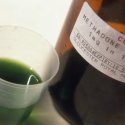The Need for Integrated Treatment at Dual Diagnosis Treatment Centers
Alcohol and drug addictions can slowly destroy a person’s life from the inside out. People in drug addiction treatment contend with ongoing pressures and challenges brought about by the long-term effects of drug use. When recovering addicts must also contend with a psychological disorder, the recovery process becomes that much more difficult.
Within the addiction’s field, treating dual diagnosis conditions poses unique challenges for the treatment providers as well as the patients. Current treatment approaches tend to be fragmented in terms of the types of services provided as well as in where and how these services are offered.
For someone battling addiction and psychological problems, a fragmented treatment approach makes it difficult to get needed treatment care. In effect, these conditions have created an urgent need for integrated treatment at dual diagnosis treatment centers.
Dual Diagnosis Conditions

Dual diagnosis is best treated with an integrated approach that gives attention to all aspects of a person’s condition.
According to the Substance Abuse & Mental Health Services Administration, 50 percent of people affected by psychological disorders also struggle with substance abuse problems. The combined effects of dual diagnosis conditions places those affected at increase risk of:
- Relapse
- Incarceration
- Hospitalization
- Serious health problems (hepatitis, HIV)
- Homelessness
While addiction exists as a self-perpetuating condition in and of itself, the added distress brought on by a psychological disorder only works to aggravate existing addiction-based behaviors. Likewise, ongoing drug use further worsens symptoms associated with psychological disorder. Without access to needed treatment resources, people battling dual diagnosis conditions remain have little if any chance at recovery.
Current Problems
People affected by dual diagnosis conditions must work within a healthcare system that separates mental health treatment services from substance abuse treatment services. As a result, these people have a higher likelihood of receiving ineffective treatment care.
The overall goal of dual diagnosis treatment attempts to help individuals learn how to manage both disorders so they can lead productive, quality lives. In effect, people in this category are battling two different disorders at the same time. Without a coordinated treatment approach in place, it becomes increasingly difficult to address the needs of the individual.
Integrated Treatment Benefits
An integrated dual diagnosis treatment approach combines substance abuse and mental health interventions into a single treatment program. The current treatment model sees patients bounced back and forth between two different systems of care with little to no communication between treatment providers.
With an integrated treatment approach, the two systems would combine. By doing so, clinicians treat both disorders rather than treating one or the other. Under these conditions, patients have a better chance of receiving effective treatment care.
Integrated Treatment Approach
An integrated treatment approach would entail a comprehensive, long-term program designed to address the various challenges and problems people with dual diagnosis conditions face. As some psychological conditions, such as bipolar and anxiety disorders can give rise to more severe symptom profiles, integrated treatment programs implement assertive outreach practices as part of their intervention approach.
Other areas of emphasis may include:
- Social skills training
- Developing interpersonal relationship
- Drug education
- Educating patients on their own respective psychological conditions
- Family interventions
Ultimately, an integrated approach to treating dual diagnosis conditions closes up the gaps that make it so difficult for those affected to receive needed treatment care.

